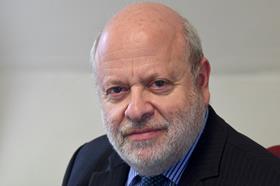Over the last few weeks, I have attended farewell ceremonies marking the end of the Law Society’s excellent Brussels office. The Gazette reported its impending closure a few months back, and it will soon become a reality.

Solicitors’ responses to the closure will doubtless depend on their attitude towards Brexit, and nothing will change anyone’s mind on the virtues or otherwise of that decision. But, regardless of positions on Brexit, the office performed an extremely valuable function during our membership of the EU by lobbying in solicitors’ interests, and, once the withdrawal process had begun, by advising the profession on the consequences of Brexit for their daily practice.
The closure raises the question of the profession’s continuing need for Brussels-based intelligence and lobbying; whether through an office in the EU capital (now closing) or through staff and committees based in Chancery Lane.
Of course, there is no longer the same need for us to lobby directly on EU legislation since so much less has consequence for us. But that does not mean that we have no needs at all.
There are several issues where a continuing dialogue with the EU on legal matters is crucial. That dialogue can often be principally conducted through our membership of the EU-wide organisation for the legal profession – the Council of Bars and Law Societies of Europe (CCBE) – but sometimes, maybe, directly with EU officials themselves. It will need management through the Law Society.
So what are those issues?
First and foremost, there is the question of the mutual recognition of judgments. The European Commission has declined to allow the UK to rejoin the Lugano Convention, which provides for the recognition and enforcement of a wide range of civil and commercial judgments between the EU and EFTA states. We are left with a more complex web of different systems. For some clients, it is harder, slower and more costly to achieve a successful outcome in multijurisdictional European disputes. It is clearly in our profession’s, and our clients’, interests to keep seeking ways to improve the position, difficult as it now seems.
Then there are more political issues, like the current sanctions on Russian individuals and businesses. These sanctions are mostly devised through an alliance between the EU, US and UK. Legal services are already partly caught up in them. It is important that lawyers’ interests are considered – meaning, in fact, the interests of lawyers’ clients, who are protected by our professional core values. The legal professions in the three blocs must liaise with each other before making representations to their own governing authorities, to ensure that there are no intrusions into our values, such as confidentiality, and that there is equivalence in how lawyers and their clients are treated. It appears that there will be another round of sanctions following president Putin’s threats of escalation last week.
Next, there are SLAPPs (strategic litigation against public participation, as when billionaires sue journalists to silence and bankrupt them). We will wait to hear whether our new lord chancellor will continue with his predecessor’s plans to introduce anti-SLAPP measures; I assume so. The European Commission has introduced its own draft directive. The problem is that the two sets of plans are not complementary, with one stricter than the other. Given that one of the challenges of SLAPPs can be their cross-border nature, and that London is the Town Called Sue, it is in the interests of officials on both sides to come together to discuss the consequences for each other of their differently weighted proposals. The Law Society would be an ideal sponsor of such a dialogue, in light of the difficulty of direct contact between authorities because of ongoing tensions over the Northern Ireland Protocol.
Such a dialogue might take place on other issues, too. For instance, there are increasing accusations by international bodies about lawyers being professional enablers. Over the summer, the commission published a proposal for a directive to tackle the role of enablers who facilitate tax evasion and aggressive tax planning (the first a crime, the second not). There should not be different responses to these accusations, which are now made internationally, between, say, lawyers in the EU and the UK. So it is in our own interests for the Law Society to make its views known in support of our European colleagues.
Similarly, lawyers’ response to the challenges thrown up for ourselves and our clients by climate change must take account of EU initiatives.
The closure of the Society’s Brussels office is a great loss. The excellent staff are to be congratulated on their contribution to our profession over 31 years. But the work goes on, in a different form, through different channels and on different topics. An ongoing dialogue with the legal authorities of our nearest neighbour – a gigantic neighbour – is both unavoidable and in our interests.
Jonathan Goldsmith is Law Society Council member for EU & International, chair of the Law Society’s Policy & Regulatory Affairs Committee and a member of its board. All views expressed are personal and are not made in his capacity as a Law Society Council member, nor on behalf of the Law Society
This article is now closed for comment.































6 Readers' comments